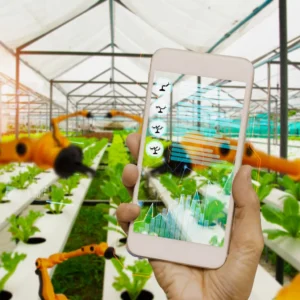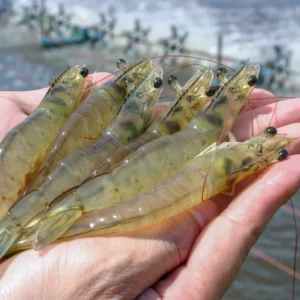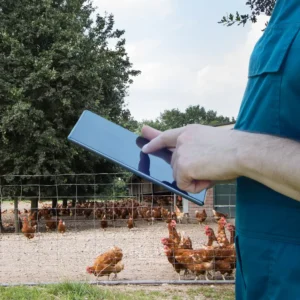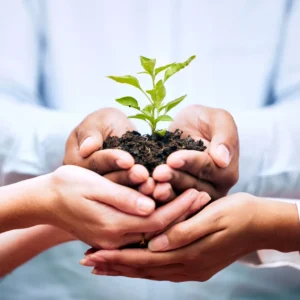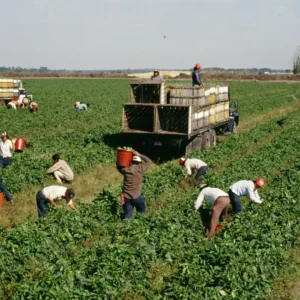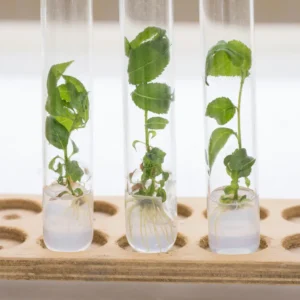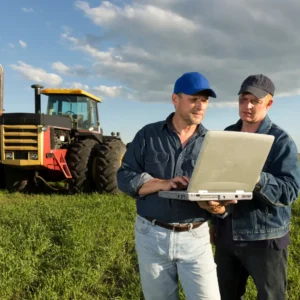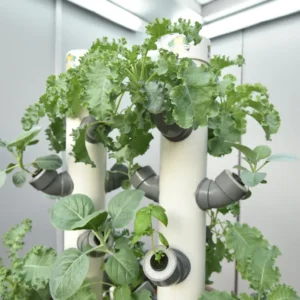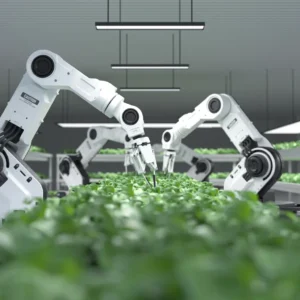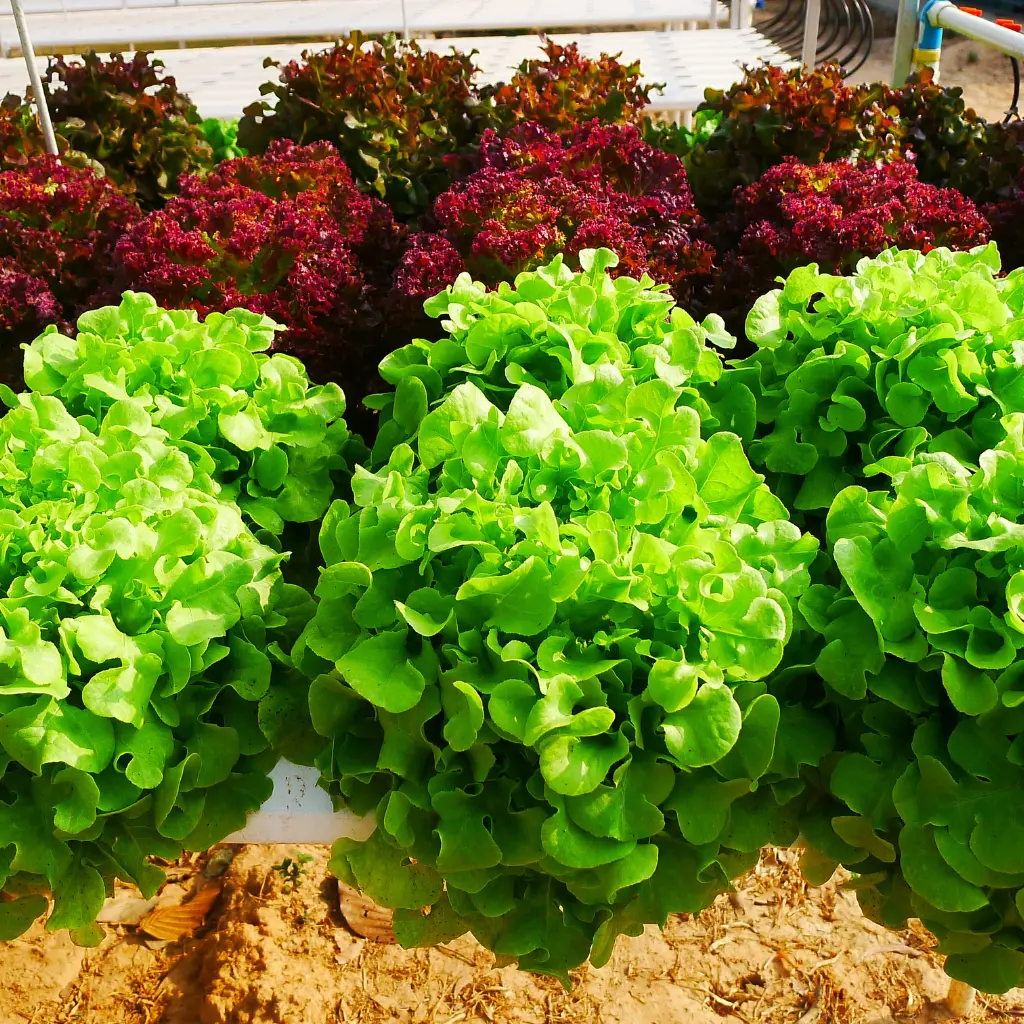
Natural Nurturing
AI in Boosting Organic Farming
Embarking on a journey through the fields of “AI in Boosting Organic Farming” unveils a new era of sustainable agriculture. Imagine natural pest control solutions powered by artificial intelligence, guarding crops with eco-friendly precision.
Picture knowing the optimal planting time and techniques, thanks to machine learning’s predictive prowess. Dive deeper and witness AI-driven soil analysis, offering a profound understanding of soil health for more targeted cultivation.
Explore the best practices that make organic farming thrive, fine-tuning each step for maximum efficiency. Discover how AI ensures bountiful harvests while maintaining ecological balance.
Together, we celebrate the accomplishments of organic farming, made possible through AI’s intervention. Let’s step into the future, where AI continues to shape and elevate organic agriculture.
Table of Contents
Keeping pests away the natural way
In the world of AI in Boosting Organic Farming, naturally combating pests is more effective than ever. AI-driven solutions have replaced traditional pesticides to minimize environmental harm. These AI for natural pest control solutions utilize advanced algorithms to detect, monitor, and manage pests organically.
Machine learning can predict potential pest outbreaks in organic crops. AI analyzes historical data and current conditions to predict when pests might strike, enabling timely interventions.
Moreover, AI-driven organic soil analysis offers valuable insights into soil health. This technology gives farmers a detailed understanding of their soil’s composition, allowing for precise nutrient management (AI tools for optimizing organic inputs).
As we venture further into organic farming, embracing AI keeps pests at bay naturally and enhances soil health, ultimately leading to bountiful organic harvests. Now, let’s explore how AI can predict the success of organic crops in the next segment: “Predicting organic crop success.” How can AI help farmers foresee challenges and ensure fruitful yields?
Predicting organic crop success
Building on the foundation of AI-driven pest control in AI in Boosting Organic Farming, we delve into predicting organic crop success. How can we ensure abundant yields naturally?
With the power of ML for organic crop predictions, you can know when and how to plant organic crops for maximum output. AI analyzes historical weather patterns, soil data, and crop-specific requirements, guiding farmers in deciding planting times and techniques.
But predicting crop success isn’t just about timing. It’s also about optimizing every aspect of cultivation. AI-driven analytics (Analytics for natural farming practices) scrutinize the entire farming process, offering real-time irrigation, fertilization, and pest management recommendations.
Incorporating AI into your organic farming practices ensures data-driven insights guide each step. So, how can we further harness AI to maintain optimal soil health and nutrient balance? Discover the answers in the upcoming segment, “Soil health analysis using AI.” How does AI contribute to sustainable organic soil management?
Soil health analysis using AI
Continuing our journey through AI in Boosting Organic Farming, we focus on the foundation of organic growth: soil health. How can we ensure our soil remains rich and fertile for organic cultivation?
AI’s role in this domain is nothing short of transformative. AI extends its reach into the soil by connecting the dots from our previous discussion on predicting crop success. With AI-driven organic soil analysis, farmers better understand their soil’s composition and vitality.
Imagine knowing which nutrients your soil needs, reducing waste and environmental impact. AI-powered tools provide actionable insights, offering guidance on organic fertilization and nutrient management (AI tools for optimizing organic inputs).
By employing AI to monitor and nurture the soil’s health, organic farmers can cultivate sustainably, ensuring the land remains fertile for generations. But what are the best practices for organic cultivation, and how can AI assist in implementing them? The answers lie in the next segment, “Best practices for organic cultivation.” How can AI further enhance organic farming techniques?
Best practices for organic cultivation
As we nurture our organic farms with insights gained from AI in Boosting Organic Farming, we arrive at the heart of sustainable agriculture: implementing the best practices for organic cultivation. How can AI contribute to the excellence of organic farming?
With AI’s guidance, we can finely tune every aspect of our farming methods. Using AI to integrate soil health analysis can help farmers optimize cultivation techniques, reduce water waste, and improve organic inputs.
By analyzing environmental conditions, AI assists in maintaining an eco-friendly approach, reducing the impact on the ecosystem (Real-time monitoring of organic farms).
By embracing AI-driven best practices, organic farmers are fostering healthier crops and promoting sustainable agriculture. So, how do these practices translate into plentiful organic harvests? The answer lies in our next segment, “Ensuring plentiful organic harvests.” How can AI help ensure an abundant yield while preserving the organic ethos?
Ensuring plentiful organic harvests
Our journey through AI in Boosting Organic Farming has taught us how AI-backed best practices can make organic cultivation more efficient and sustainable. But how do these efforts culminate in ensuring abundant organic harvests?
AI-driven practices, such as precise nutrient management and real-time monitoring of organic farms, are pivotal. They help create the optimal conditions for organic crops to thrive and reach their full potential. Predictive analytics (Analytics for natural farming practices) assist in identifying potential challenges in advance, allowing farmers to take preventive measures.
Furthermore, AI contributes to the preservation of crop diversity and resilience. By monitoring and managing the ecosystem, AI can help maintain a balance that keeps pests in check while promoting beneficial organisms (AI for natural pest control solutions).
With AI as a guiding force, organic farmers can confidently work towards harvests that meet demand and promote ecological balance. But how do we ensure that these natural practices are consistently adhered to? The answer lies in our next segment, “Keeping an AI eye on natural practices.” How can AI continue to support and supervise the implementation of these organic principles?
Keeping an AI eye on natural practices
In our exploration of AI in Boosting Organic Farming, we’ve uncovered how AI assists in cultivating plentiful organic harvests. But how do we ensure these natural farming practices are consistently upheld and improved?
AI’s role extends beyond the initial planning and execution phases. It acts as a vigilant guardian, monitoring the farm 24/7. AI-powered sensors track environmental conditions, soil moisture levels, and even the health of individual plants. If any irregularities are detected, alerts are sent, allowing farmers to take immediate action (Real-time monitoring of organic farms).
Moreover, AI chatbots are becoming invaluable companions for organic farmers, offering real-time advice and solutions to common farming challenges (AI chatbots for organic farming advice). These chatbots are equipped with extensive knowledge and are accessible anytime, anywhere.
With AI as a watchful overseer and a source of instant guidance, organic farming practices can evolve and adapt in real time, ensuring the utmost efficiency and sustainability. But what are some valuable tips these chatbots can offer, and how can they further empower organic farmers? The answer lies in our next segment, “Organic farming tips via chatbots.” How can AI chatbots contribute to the organic farming community’s collective knowledge and success?
Organic farming tips via chatbots
Building on the idea of AI support in Boosting Organic Farming, chatbots have emerged as indispensable tools for organic farmers, offering real-time advice and insights. How do these digital companions contribute to the success of organic agriculture?
Chatbots equipped with AI are like personal farming mentors, ready to guide a moment’s notice. Farmers can seek advice on pest control, crop management, and even weather forecasts, all while out in the field (AI chatbots for organic farming advice).
These chatbots are also repositories of accumulated knowledge, storing and sharing best practices for organic cultivation (Best Practices for organic cultivation). They enable farmers to tap into a wealth of information and learn from the experiences of others.
As AI-driven chatbots evolve, they become more adept at understanding the unique needs of each farm and offer tailored recommendations. By harnessing the power of technology, organic farmers can access the community’s collective wisdom, ensuring their practices align with the most effective and sustainable methods. But how can AI help farmers with advice and optimizing their use of natural inputs? The answer lies in our next segment, “Using the right natural inputs efficiently.” How can AI assist in making the most of organic resources?
Using the right natural inputs efficiently
Having explored the benefits of AI-powered chatbots for organic farmers in our journey through AI in Boosting Organic Farming, let’s delve deeper into how AI helps maximize the use of natural inputs. How can technology make organic resources go further?
AI systems provide personalized recommendations for nutrient application (AI tools for optimizing organic inputs) with the help of soil health analysis data. By tailoring fertilizer and compost usage to specific crop needs, farmers can achieve healthier and more productive yields.
Additionally, AI plays a pivotal role in precision agriculture. It aids in efficiently deploying resources like water and energy, reducing waste and environmental impact (Analytics for natural farming practices). This ensures that every drop of water and every ounce of energy contributes to the flourishing of organic crops.
With AI’s assistance, organic farmers can work smarter, not more complex, and make the most of their natural resources. But as we embrace AI for more efficient practices, how do we celebrate the growth and success of organic farming? The answer awaits in our next segment, “Celebrating organic growth with AI.” How can technology be a part of recognizing and promoting the achievements of the organic farming community?
Celebrating organic growth with AI
As we harness the power of AI to optimize organic farming practices, it’s essential to acknowledge and celebrate the remarkable strides made in the realm of AI in Boosting Organic Farming. How can we recognize and promote the achievements of the organic farming community through AI?
One way is by highlighting success stories of AI in organic farming. By showcasing instances where AI has led to increased yields, reduced environmental impact, and thriving ecosystems, we can inspire others to adopt these technologies (Success stories of AI in organic farming).
Moreover, AI can play a role in organizing and facilitating organic farming events, workshops, and forums. Digital platforms powered by AI can connect farmers, researchers, and enthusiasts to share knowledge, experiences, and ideas, fostering a sense of community and growth (AI-driven organic soil analysis).
By embracing technology, we can spotlight the organic future AI is helping us create. But what are the next steps in AI-driven organic farming, and how can we continue to innovate in this field? The answer lies in our final segment, “The next steps in AI-driven organic farming.” What lies ahead for the convergence of AI and organic agriculture?
The next steps in AI-driven organic farming
As we look to the future of AI in Boosting Organic Farming, it’s vital to continue the momentum of innovation and progress. Having celebrated organic growth achievements with AI, what lies ahead for this transformative synergy?
One critical step is the refinement and expansion of AI’s role in organic farming. Advances in machine learning algorithms and sensors can enable even more precise and real-time insights into crop and soil health (Real-time monitoring of organic farms). AI can become an indispensable partner for farmers, providing recommendations and predictive capabilities for addressing challenges before they arise (ML for organic crop predictions).
Furthermore, integrating AI with sustainable practices is paramount. Organic farming is inherently eco-friendly, and AI can enhance its ecological impact. This involves reducing resource usage, minimizing waste, and ensuring a holistic approach to organic agriculture (Analytics for Natural Farming Practices).
But perhaps the most exciting prospect is the democratization of AI in agriculture. How can we make AI-driven tools and knowledge more accessible to all farmers, regardless of their resources? The answer to this question will shape the future of AI-driven organic farming, fostering a more sustainable and abundant organic future.
Conclusion
In conclusion, the future of organic farming has remarkable potential with AI in Boosting Organic Farming. From keeping pests at bay the natural way to predicting crop success and analyzing soil health using AI, we’ve explored how technology revolutionizes sustainable agriculture.
We’ve witnessed the power of AI-driven chatbots providing organic farming tips and optimizing natural inputs efficiently. These digital mentors are accessible, knowledgeable, and vital to the organic farming ecosystem.
Furthermore, as we celebrate organic growth with AI, we’ve highlighted the importance of sharing success stories, fostering community through AI-powered platforms, and organizing events that celebrate the achievements of the organic farming community.
The following steps in AI-driven organic farming involve refining AI’s role, enhancing ecological sustainability, and democratizing access to these transformative technologies. We must continue to innovate, making AI tools more precise, environmentally friendly, and accessible to all.
As we embark on this organic journey guided by AI, one question remains: How can we collectively shape the future of agriculture to ensure sustainable, abundant, and eco-friendly organic harvests for generations to come?
Related Articles
- AI in Smart Agriculture – Precision Farming
- AI in Modern Aquaculture – Underwater Harvest
- AI in Animal Farming – Tech Meets Livestock
- AI in Sustainable Agriculture – Green Gains
- AI in Agricultural Supply Chain – From Farm to Table
- AI in Agricultural Biotechnology – Bespoke Crops
- AI in Agri-Finance and Insurance – Safeguarding the Harvest
- AI in Farming Tools and Machinery – Equipped for the Future
- The AI Urban Farming Revolution – Cultivating Cities
- AI in Agricultural Automation – Robotic Revolution
- AI in Post-Harvest Care – Beyond the Harvest
- The Surge of Agri-Tech AI Platforms – Digital Farming
- AI in Combatting Crop Diseases – Healthy Harvests
- AI in Agricultural Supply Chain Management
- AI in Precision Agriculture: Farms for a Sustainable Future
- AI in Crop Forecasting and Analysis: New Agricultural Era
- The Role of AI in Agricultural Robotics: Revolutionizing Farming
- AI in Smart Greenhouses: Revolutionizing Sustainable Agriculture

Arindam Roy
An Automation Consultant with 25+ years of IT Experience
Forbes Articles related to AI usage in the Agriculture Sector:

